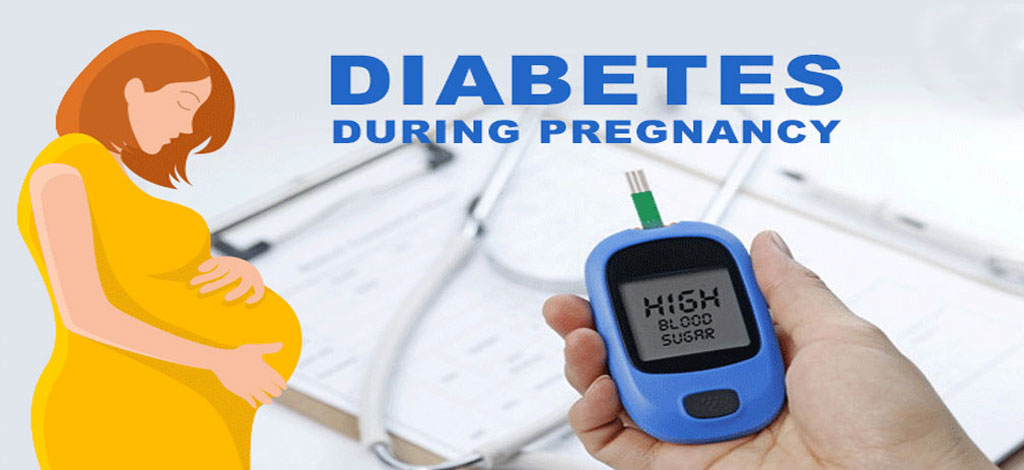Best Doctor For Diabetes in Pregnancy in Malad
Diabetes during pregnancy, known as gestational diabetes, can pose significant health risks to both the mother and the baby. Understanding its symptoms and treatments is crucial for ensuring a healthy pregnancy and reducing the risk of complications. This article provides an overview of the symptoms of gestational diabetes and outlines effective treatment strategies. Dr Neeta Shah is Best Doctor For Diabetes in Pregnancy in Malad.
Symptoms of Gestational Diabetes
Gestational diabetes often presents with subtle symptoms, and many women may not notice them. However, being aware of the potential signs can lead to earlier diagnosis and better management. Common symptoms include:- Increased Thirst and Frequent Urination: These are common signs of diabetes as the body attempts to rid itself of excess glucose through urine.
- Fatigue: High blood sugar levels can lead to feelings of extreme tiredness and lack of energy.
- Blurred Vision: Elevated blood glucose can cause changes in the eyes, leading to blurred vision.
- Unusual Weight Gain: While weight gain is expected during pregnancy, unusually rapid or excessive weight gain can be a symptom of gestational diabetes.
- Nausea: Some women experience increased nausea, which can be confused with typical pregnancy symptoms. It's important to note that many women with gestational diabetes do not exhibit obvious symptoms. Therefore, routine screening is essential, usually performed between the 24th and 28th weeks of pregnancy.
Screening and Diagnosis
Screening for gestational diabetes involves a glucose challenge test. If the initial screening shows elevated blood sugar levels, a follow-up glucose tolerance test is conducted to confirm the diagnosis.- Glucose Challenge Test: Involves drinking a sugary solution and measuring blood sugar levels after one hour.
- Oral Glucose Tolerance Test (OGTT): Conducted if the initial test is positive. It involves fasting overnight, then drinking a glucose solution and measuring blood sugar levels at multiple intervals over a three-hour period.
Treatment for Gestational Diabetes
Managing gestational diabetes involves a combination of lifestyle changes and, in some cases, medication. The primary goal is to maintain blood sugar levels within a normal range to ensure a healthy pregnancy and delivery. Dr Neeta Shah is Best Doctor For Diabetes in Pregnancy in Malad1) Dietary Changes:
- Balanced Diet: A diet rich in fiber, lean proteins, and healthy fats, while limiting simple sugars and refined carbohydrates.
- Frequent Small Meals: Eating smaller, more frequent meals helps maintain stable blood sugar levels.
- Carbohydrate Counting: Monitoring and controlling carbohydrate intake to prevent blood sugar spikes.
2) Regular Exercise:
- Moderate Physical Activity: Engaging in regular, moderate exercise like walking, swimming, or prenatal yoga can help regulate blood sugar levels.
- Exercise Routine: Aiming for at least 30 minutes of moderate exercise most days of the week.
Blood Sugar Monitoring:
- Self-Monitoring: Regularly checking blood sugar levels at home using a glucose meter.
- Tracking Levels: Keeping a log of blood sugar readings to help identify patterns and make necessary adjustments to diet and activity.
Medication:
- Insulin Therapy: If blood sugar levels cannot be controlled through diet and exercise alone, insulin injections may be necessary.
- Oral Medications: In some cases, oral medications such as metformin may be prescribed, though their use in pregnancy can vary based on individual circumstances.
Regular Medical Check-Ups:
- Frequent Monitoring: Regular appointments with healthcare providers to monitor the health of both the mother and the baby.
- Ultrasounds: Periodic ultrasounds to track the baby’s growth and development.
Risks and Complications
If not properly managed, gestational diabetes can lead to several complications, including:- For the Baby: Macrosomia (large baby), premature birth, respiratory distress syndrome, and low blood sugar after birth.
- For the Mother: Increased risk of high blood pressure and preeclampsia, and a higher likelihood of developing type 2 diabetes later in life.
Postpartum Care
After delivery, gestational diabetes typically resolves. However, women who have had gestational diabetes are at higher risk of developing type 2 diabetes in the future. Postpartum care includes:- Postpartum Glucose Testing: Conducted 6-12 weeks after delivery to ensure blood sugar levels have returned to normal. Lifestyle Modifications: Continuing healthy eating and regular physical activity to maintain normal blood sugar levels.
- Regular Check-Ups: Ongoing monitoring of blood sugar levels during routine medical visits.
Conclusion
Gestational diabetes is a manageable condition with the right approach. By recognizing symptoms early, adhering to treatment plans, and maintaining a healthy lifestyle, most women can have a healthy pregnancy and reduce the risk of complications for both themselves and their babies. Regular communication with healthcare providers is key to effective management and ensuring the best possible outcomes.Dr Neeta Shah is Best Doctor For Diabetes in Pregnancy in Malad.

